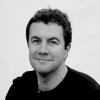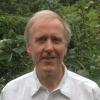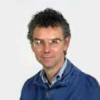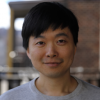How are myriads of different cells made, organised into tissues, arranged in the correct places and co-ordinated functionally to form an animal? These are fundamental questions that research into developmental biology seeks to address. They are important not only for understanding how the body is made but also for our understanding of diseases, since inappropriate activity of developmental components is at the root of cancers and degenerative disorders. Within the department we are investigating many aspects of development, including how cells are genetically and epigenetically programmed to become different, how cells talk to one another, how cells respond to signals to migrate or to send out long processes, how cells assemble and re-arrange to make tissues and how cells mature and differentiate as their functions change with age. We use a wide range of approaches to investigate these questions; from genetics and genomics, to sophisticated cell biology and imaging, to physiological measurements in whole organisms. As models we study diverse animals, including invertebrates as well as vertebrates, to find out how these fundamental processes are controlled and co-ordinated.
Each different tissue type in the body has its own characteristics and poses particular challenges for our understanding of development. One strong interest in the department is in the nervous system, whose complexity and long-distance wiring are a major developmental feat. We are investigating how different types of neural populations are programmed to produce the correct number of cells in the right place and how their axons navigate over long distances and then make synaptic connections with specific target cells. A second interest is in germ cell (egg and sperm) development. These unique cells are the precursors for all cells in the body and we are unravelling what genetic and epigenetic components contribute to their unique properties. In addition, populations of cells, such as germ cells and neural stem cells, have the capacity to self-renew and are potentially an important therapeutic tool for the future. Several groups are endeavouring to understand the self-renewal properties of stem cells and what regulates their differentiation into different cell types. A third major research interest is in mammalian development and the processes that control and co-ordinate the interactions between the developing animal and its mother that lead to the delivery of viable young. In particular, we are studying the role of genomic imprinting and environmental signals in programming intrauterine development with particular emphasis on the interaction between genes, cells, tissues and organs in the control of physiological systems. These studies have important implications for pregnancies complicated by pre-eclampsia and intrauterine growth retardation and for the early life origins of adult disease.























